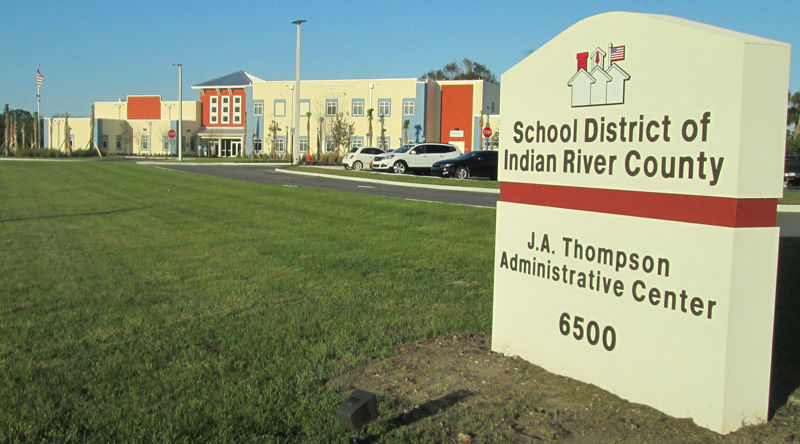INDIAN RIVER COUNTY — Indian River County School District leaders held a town hall at Vero Beach High School Performing Arts Center Thursday to explain the need for the $9 million that a 0.50 property tax levy will raise.
A referendum for the levy will appear on the Aug. 30 primary election ballot.
Of the seven different taxes school districts can levy, four are set by or capped by the state and don’t require voter approval and three do. The district has one voter-approved levy. The total tax is currently nearly $8 per $1,000 assessed property value, but will be $7.41 in the upcoming school year, due to the state lowering one of the levies.
Included in the 7.41 tax is the 0.60 tax, a measure passed in 2012 by voters. It is limited to four years by state law and can only be spent on operations, not debt or capital projects. The tax started July 2013 and ends June 2017.
The Aug. 30 referendum will lower the same additional-operations tax to 50 cents per $1,000 property-value assessment. If approved by voters, it will start in July 2017 and end June 2021.
The district will spend the money as it has been for the last four years, with two exceptions. Part of the revenue will be used to expand the Career Tech programs at the Sebastian River and Vero Beach high schools, adding construction trades such as plumbing and HVAC and possibly hospitality services and aeronautics, Superintendent Mark Rendell said.
The other exception will be how the money is split with the five public charter schools. Currently they get 5 percent of the money, which totaled about $413,000 in 2015. If the new measure passes, they will get about 12 percent or the per-student, pro-rata share of the revenue. The charter schools enroll over 2,000 of the nearly 18,000 students in the district.
The district publishes how the money is spent once a year in November in the local daily paper.
Last November the notice stated $8.2 million was collected and $2.6 million remained from the prior year. Three physical education teachers, three art teachers, 13 librarians, two music teachers and nine reading teachers were paid $1.8 million in salaries and benefits.
The SAT 10 test, given to pre-kindergarten, first- and second-graders, as well as other elementary school language-arts curriculum materials, accounted for nearly $1.2 million in expenditures.
About $7.4 million was spent on technology, including 400 classroom tablets, 900 teacher and student computers, a district-wide infrastructure upgrade and a Cisco phone system.
The revenues from the 0.60 tax are expected to raise $9.2 million in the upcoming year. Because property values are rising, the 0.50 tax is expected to raise a similar amount, if the measure is passed.
School board candidate for District 3, Laura Zorc, said she is in favor of the referendum “because I don’t see how we will be able to continue these programs otherwise.” She asked Superintendent Mark Rendell what “plan B” was if the referendum failed and he replied the district will have a year to figure that out, which is why the referendum is on the ballot at this time.
School board candidates for District 5, John Kim and Tiffany Justice, are both in favor of the referendum, also because they think the district needs the money.
Kim said the district’s bond debt is $133 million and there is a $7 million deficit in the self-insurers fund.
Justice said she is uncomfortable with that portion of the tax that will cover teacher salaries, making those student programs too dependent on voter approval.

